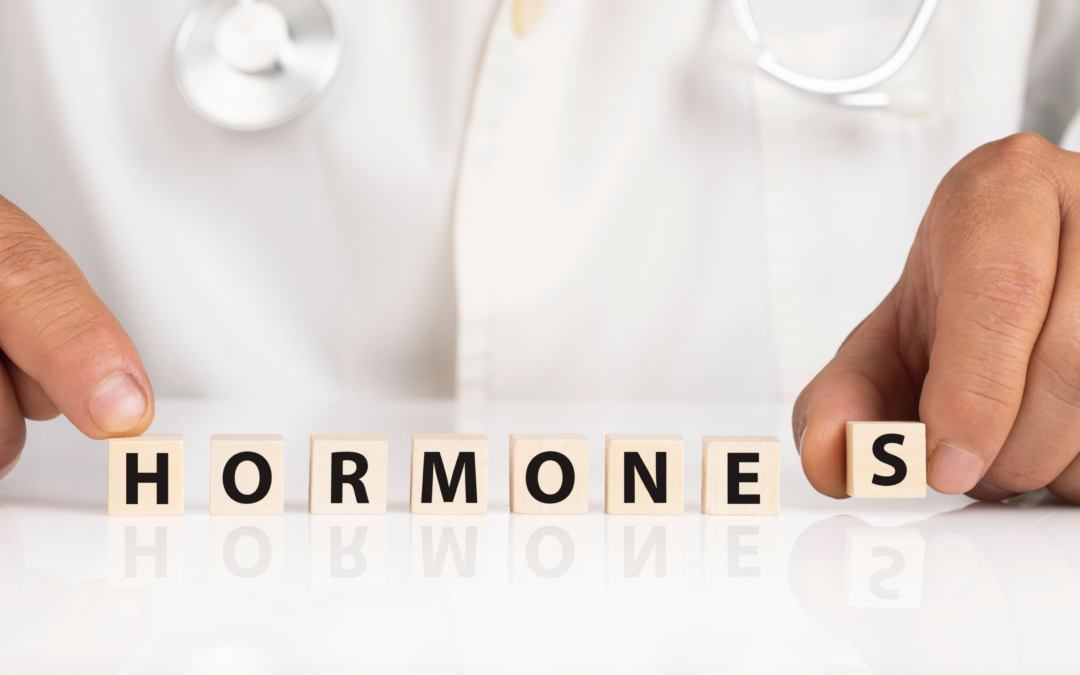In our previous article, we presented the most important reproductive hormones in humans and discussed their rise and fall during the aging process. In this issue, we’ll dive a little bit deeper into the hormones themselves. They are as follows:
- Testosterone
- Estrogens
- Progesterone
Testosterone
Testosterone is a steroid hormone that plays a key role in male sexual development and function. And while produced in smaller quantities in the ovaries and adrenal glands of women, it is still a critical hormone. In fact, it is the most abundant reproductive hormone and is critical to maintaining sexual health.
In men, testosterone is responsible for the development of male secondary sexual characteristics, such as a deeper voice, increased muscle mass, and body hair growth. It also plays a key role in regulating sperm production and sexual function, as well as maintaining bone density and regulating the balance of other hormones.
In women, testosterone plays a role in regulating sexual desire and function, as well as contributing to the development of muscle mass and bone density.
Testosterone can bind to and activate androgen receptors, which are found in various tissues throughout the body, including muscle, bone, fat, and skin. It has a wide range of effects in both men and women to include:
- Sexual development: Testosterone is responsible for the development of male sexual characteristics, including the growth of the penis and testes, deepening of the voice, and the growth of body and facial hair.
- Muscle growth and strength: Testosterone helps build and maintain muscle mass and strength, which can be important for physical performance and overall health.
- Bone density: Testosterone is important for bone health and can help maintain bone density and prevent osteoporosis.
- Red blood cell production: Testosterone stimulates the production of red blood cells, which can improve oxygen delivery to the body’s tissues.
- Mood and cognitive function: Testosterone can affect mood, energy levels, and cognitive function, and low levels have been linked to depression and cognitive decline.
- Libido and sexual function: Testosterone is important for sexual desire and function in both men and women.
- Metabolism: Testosterone can affect metabolism and body fat distribution, and low levels have been linked to insulin resistance and obesity.
Levels of testosterone can be influenced by a variety of factors, including age, lifestyle, and other hormonal imbalances, and the sensitivity of tissues to testosterone can vary, leading to different physiological responses to changes in testosterone levels. We do know that, in both men and women, testosterone production begins to decline around the late 20s and early 30s. But since it is a slow decline, generally 1 to 3% per year, the symptoms or effects can be subtle.
Another important consideration regarding testosterone is that most of it is bound to a protein called sex hormone binding globulin (SHBG). But it is only the unbound hormone or “free” testosterone, that is biologically active. SHBG levels are influenced by several factors, including age and body composition. So, it is important to know just how much testosterone is biologically active within your body to understand the likelihood of a clinical deficiency.
Estrogens
Estrogens are a group of hormones that play a key role in the development and regulation of female reproductive and secondary sexual characteristics. In women, estrogens are produced by the ovaries and in smaller quantities by other tissues, including the adrenal glands and fat cells.
Estrogens bind to and activate estrogen receptors, which are proteins found in various tissues throughout the body, including the uterus, breasts, bone, and brain. The physiologic effects of estrogens include the following:
- Regulating the menstrual cycle and preparing the uterus for pregnancy
- Stimulating the growth of the endometrial lining
- Promoting the development of breast tissue
- Maintaining bone density and reducing the risk of osteoporosis
- Influencing mood and cognitive function
Estrogen is also present in small amounts in men. In this case, it is derived from the breakdown of testosterone by an enzyme called aromatase. Certain men, especially those with a high body fat percentage, can have increased aromatase activity and therefore may have elevated estrogen levels, which can cause symptoms including abnormal breast development.
Progesterone
Progesterone is another critical hormone that plays a key role in the regulation of female reproductive function. Like testosterone and estrogens, progesterone binds to specific receptors in various parts of the body, with effects such as:
- Regulating the menstrual cycle and preparing the uterus for pregnancy
- Stimulating the growth of the endometrial lining
- Inhibiting further ovulation during pregnancy
- Maintaining pregnancy by suppressing uterine contractions
- Influencing mood and cognitive function
Progesterone is also produced in small amounts in men, where it has several important functions. In men, progesterone is produced by the adrenal glands and testes.
Progesterone is also produced in much smaller amounts in men and has effects such as:
- Modulating the secretion of luteinizing hormone (LH) and follicle-stimulating hormone (FSH) from the pituitary gland, which is involved in regulating testosterone production.
- Regulating the balance of sex hormones, including testosterone and estradiol
- Maintaining sperm production and quality
- Regulating the immune system and inflammation
Conclusion
In summary, testosterone, estrogens, and progesterone play critical roles in the reproductive health of both men and women. But they also have important biological effects in other tissues. And these reproductive hormones are unique in that they are commonly found to decline as we age. In our next article, we will discuss the evidence around the effects of declining hormones, and the rationale for taking steps to reverse them.
This article is not meant to be construed as medical advice, but rather printed for informational purposes only. Everyone’s health situation is different. As always, it is critical to discuss the use of any supplements with a licensed healthcare provider to ensure that any use is safe and potentially effective in your medical status and condition.

